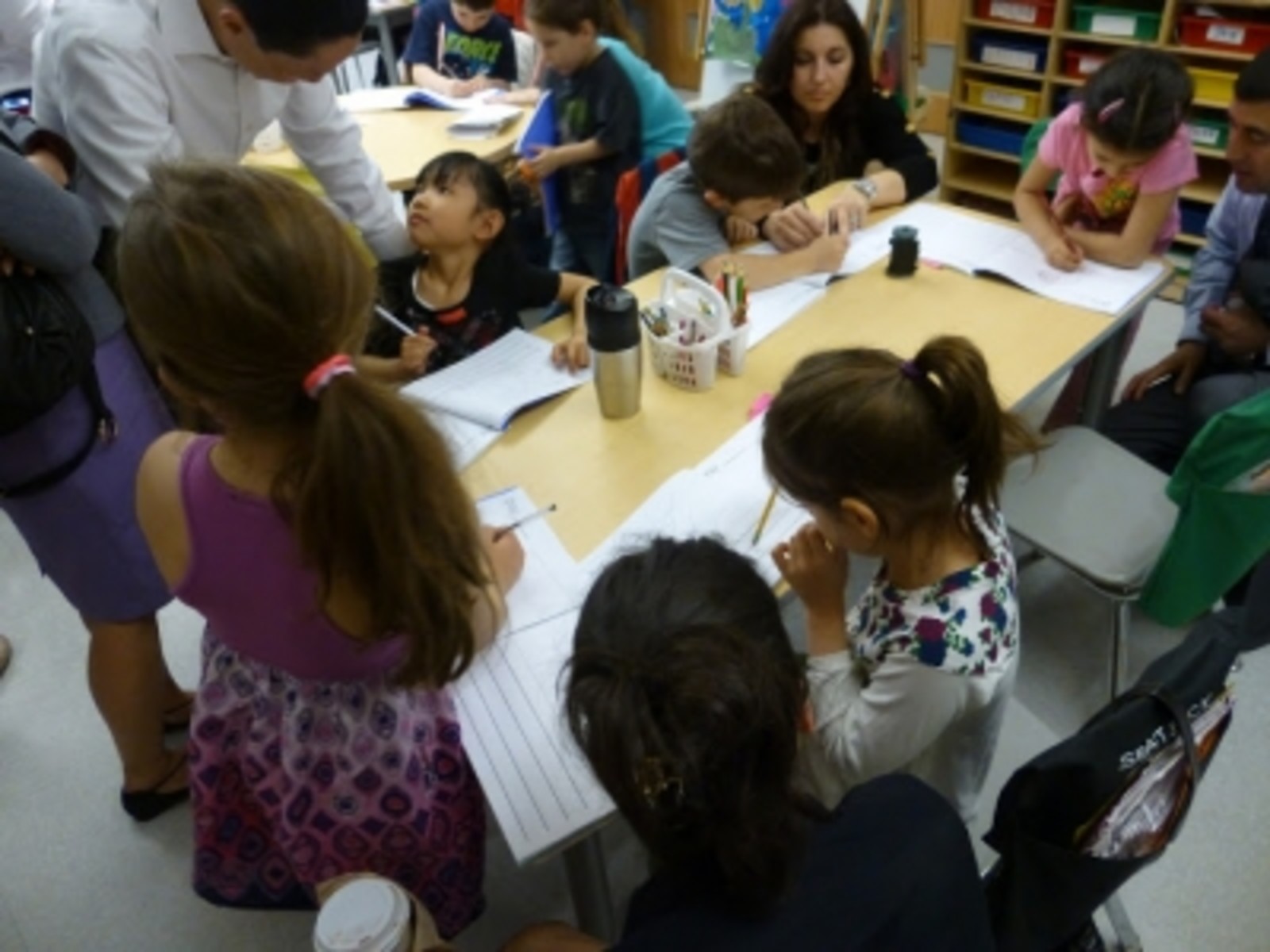10 tips for your soon-to-be-kindergartner

(This post is adapted from an article which originally appeared on Full-Time Nanny.com: 10 Role Plays to do with Your Soon to be Kindergartener)
Kindergarten is an exciting time for kids and their parents, but it can also a be a bit scary. Your child will be in a brand new environment, likely surrounded by kids he doesn't know and under the care of a teacher he's unfamiliar with. The easiest and most effective way of helping him to become acclimated and comfortable with his new school is to help him prepare for common situations he's likely to encounter. Here are ten of the encounters you can role-play with your child before he starts kindergarten.
Asking for the Restroom – Letting your child know how to ask to be escorted to the restroom and how to handle a bathroom emergency in advance allows him to be more confident when approaching his teacher, who is a virtual stranger, about such intimate needs.
Requesting Help – Your five-year-old may need help from tying his shoes to managing the clasps on a backpack. Feeling embarrassed about his difficulties or unsure of how to proceed when it comes to asking for help can lead your child to suffer in silence, so make sure that you role-play various situations in which he needs to ask the teacher for help.
Listening and Quiet Time – Unless you have a very structured household or your child has attended preschool, there's a good chance that he hasn't encountered a situation in which he's expected to be quiet and to listen as carefully as he will be at school. Work with your child on building these skills by roleplaying quiet time, then reading a book together or learning a new skill.
Handling a Bully – Even in kindergarten, bullies can be a problem. There's a strong likelihood that your child has never met someone that actively wants to hurt his feelings or do him harm, but he may very well be forced to deal with just such a child at school. Role-play bullying situations, and help your child learn the best ways of responding to bullying behavior. Not only will he learn how to deal with being the target of a bully, but also the importance of never being a bully himself. [See our Ask Judy Q&A for what to do if your child is being buillied at school. KidsHealth has helpful tips as well.]
Dealing With Conflict – Kids that have attended daycare or preschool, or those who have siblings, may have a better grasp on conflict management than only children who have been under the care of a stay-at-home parent or in-home childcare provider. Roleplaying a conflict and discussing effective ways of resolving it will give your child a bit of practical experience to rely upon during a spat with a schoolmate, and can help to make the situation less scary and hurtful for him. [See these suggestions from a teacher on Responsive Classroom.]
Making Introductions – At the kindergarten age, most kids are still introduced to their peers and adults by a parent or caregiver. When he reaches the classroom, however, your child will need to know how to introduce himself to his new classmates and his teachers.
Saying Goodbye – The first day of school can be a painful and scary experience for a kid that's never been left in a strange environment by a parent before, but roleplaying the situation can help him to prepare in advance.
Sharing – Sharing can be especially challenging for only children with little practical experience, so be sure that this is one skill you work on through roleplaying and practice in the days leading up to starting school.
Taking Direction – Kids between four and five years old are willful creatures, and don't necessarily respond well to direction without plenty of practice. Since your child will be expected to follow directions in class, make a point of practicing. Role-play getting in line, fetching and putting away objects, making his way to a specific spot and other situations where he has to follow the directions of an authority figure.
Reciting Personal Information – Your child may know his name, address and phone number by heart, but it's still wise to role-play the sharing of that information with him before starting kindergarten. It's also a good idea to talk about who he should give that information to, and who he should not share it with.
If your child has special needs or personality quirks unique to him, it's wise to make time for the roleplaying of situations that he may encounter that other children will not. Work with him to establish a familiarity with potentially stressful situations, and he'll be equipped to manage them with minimal anxiety or worry.
Please Post Comments